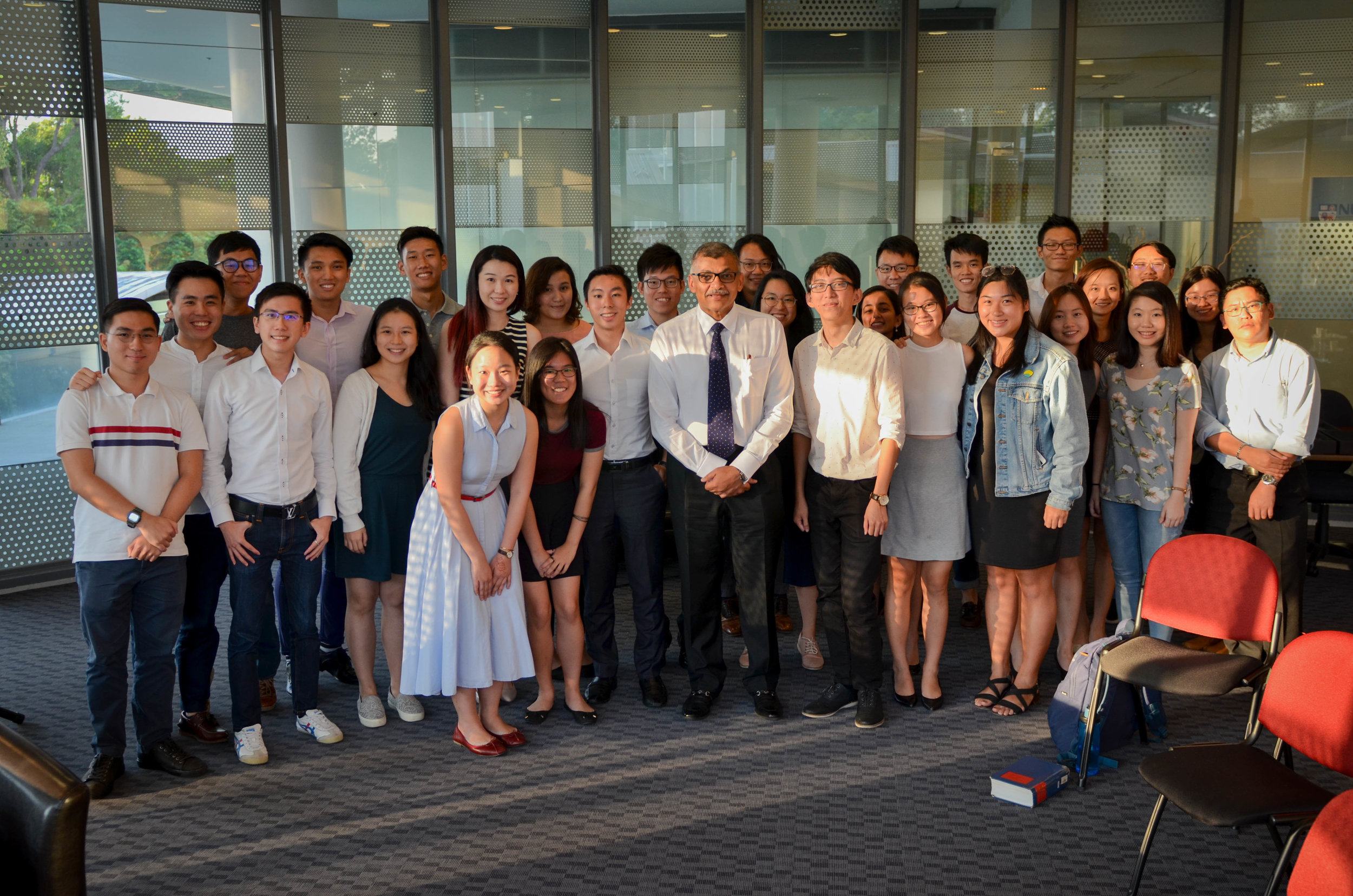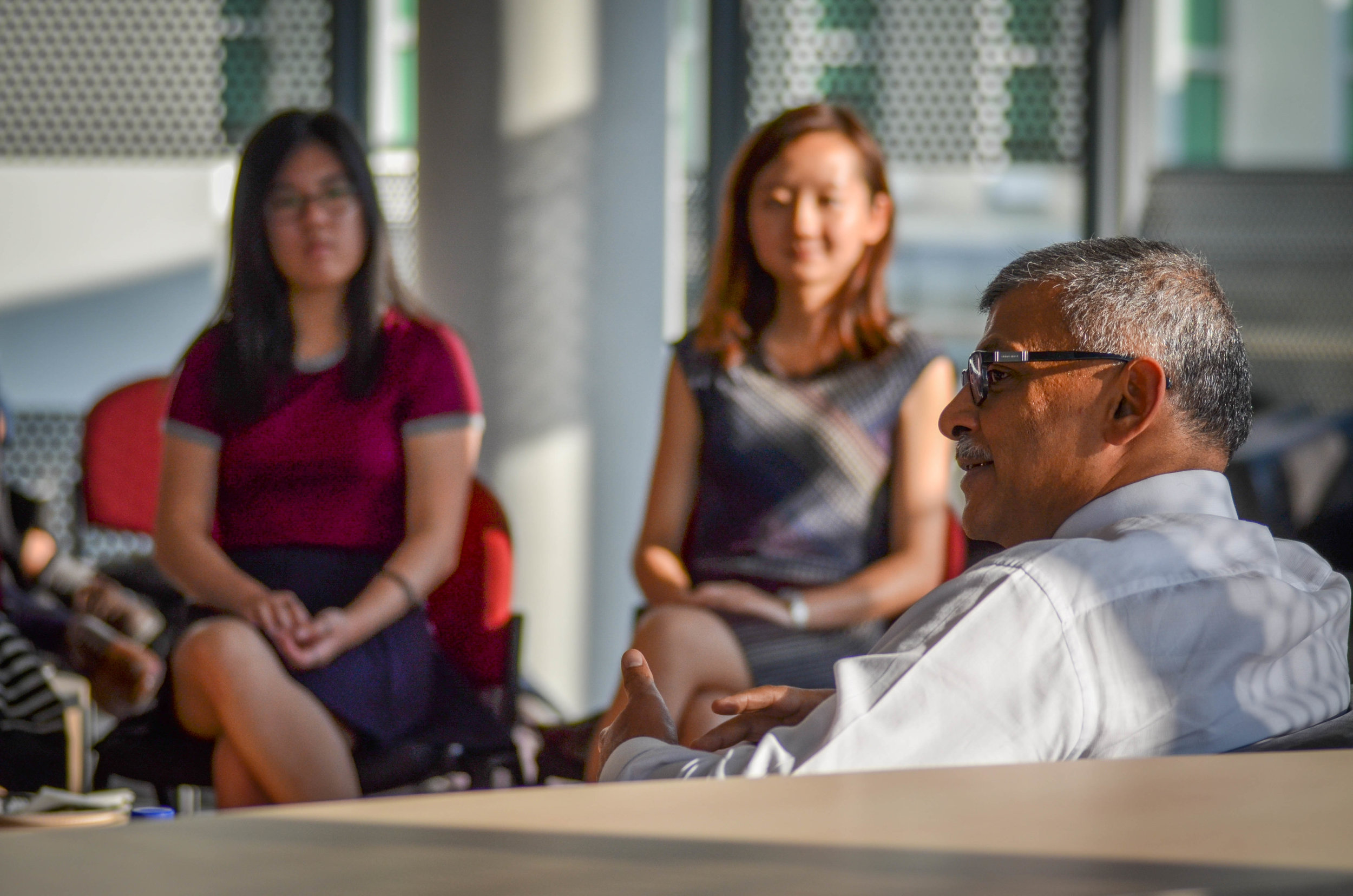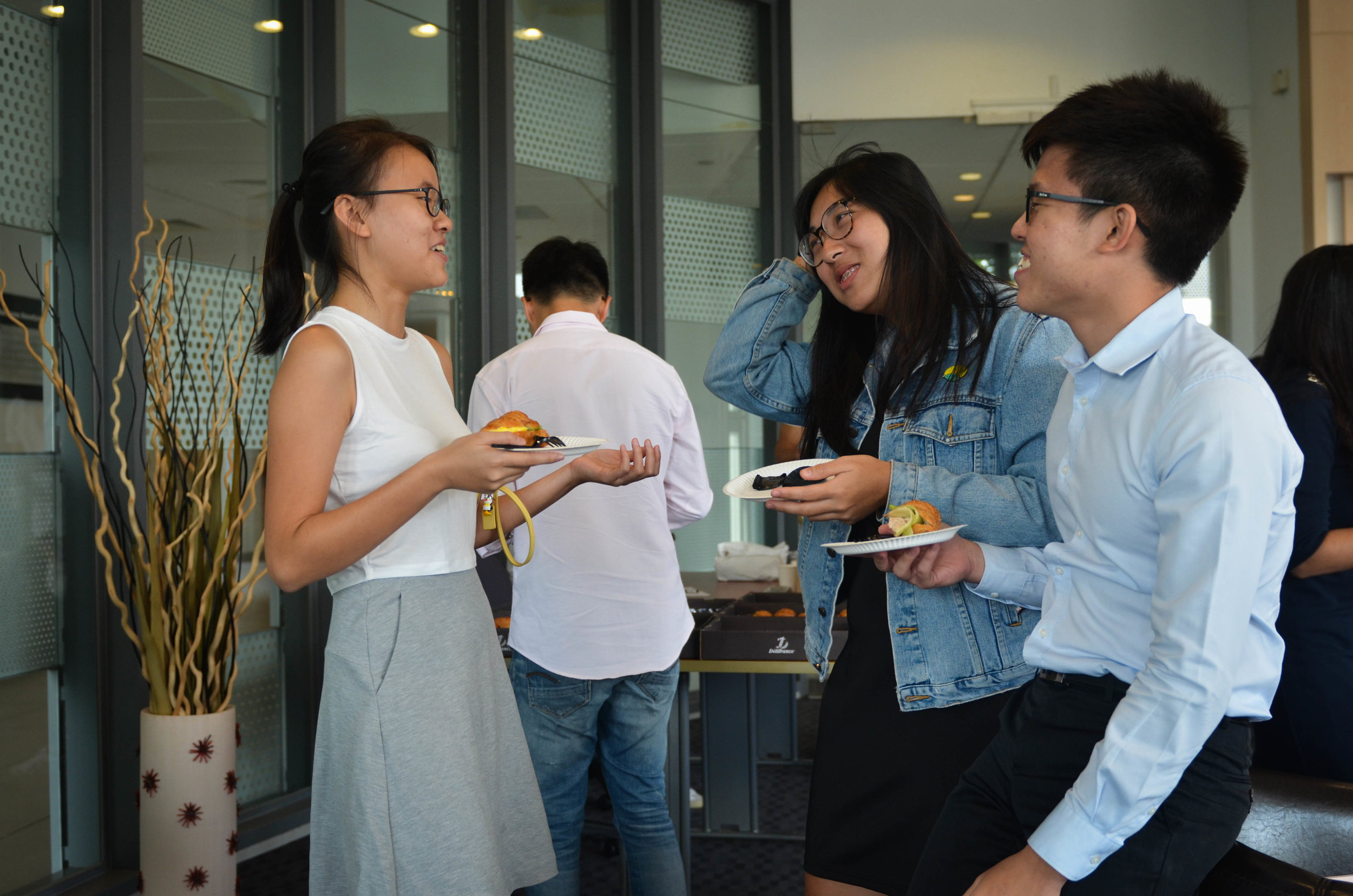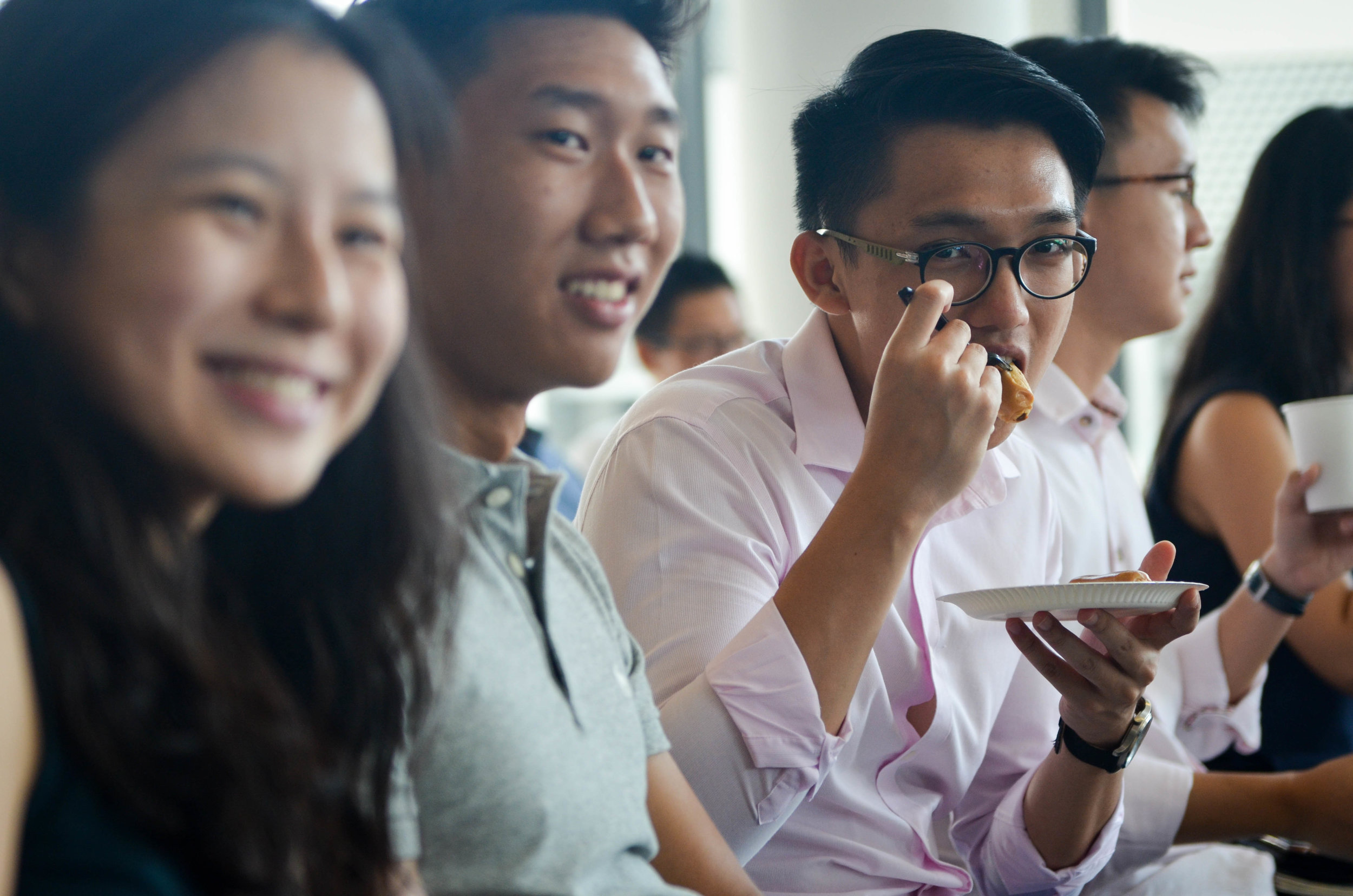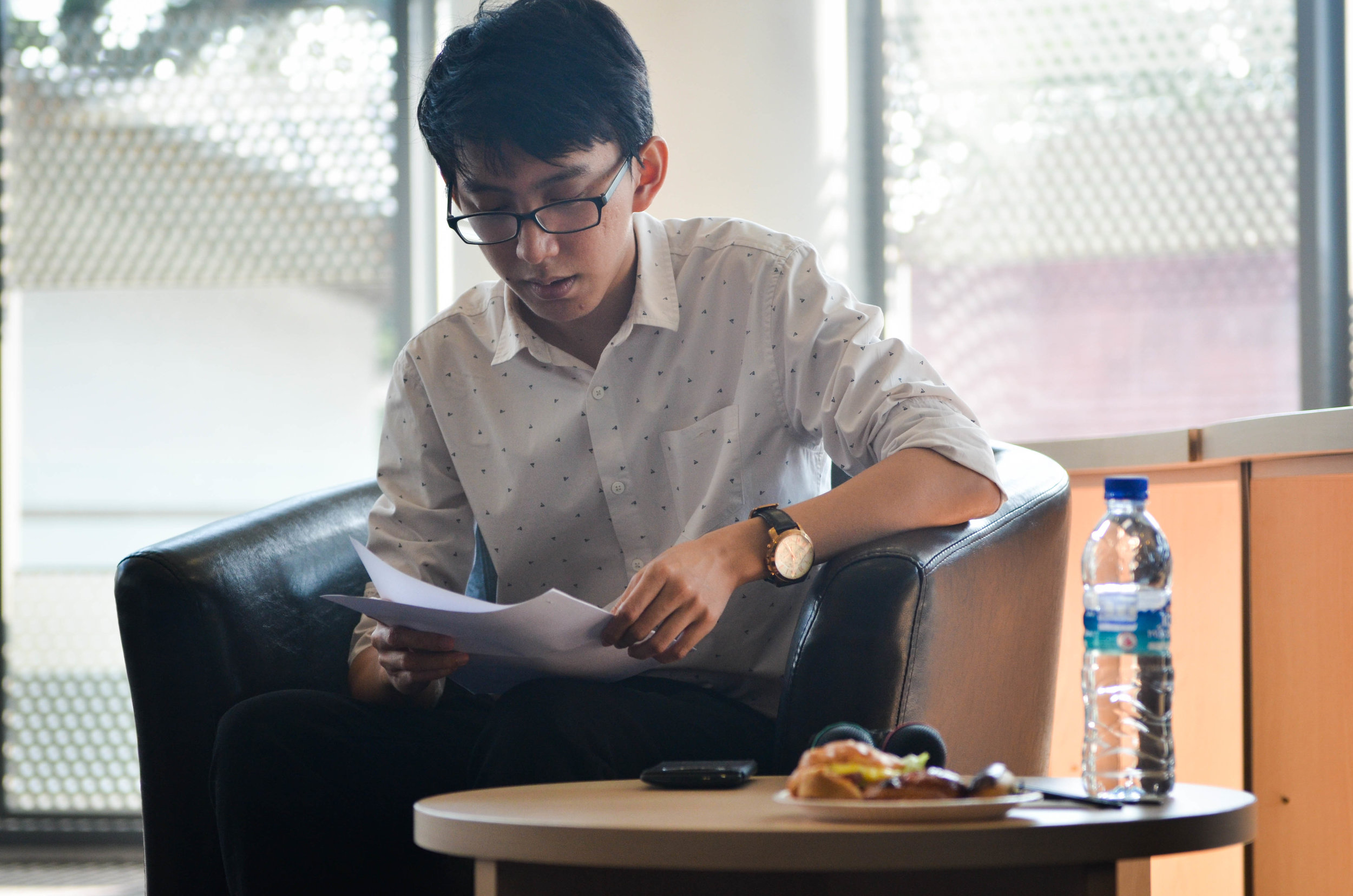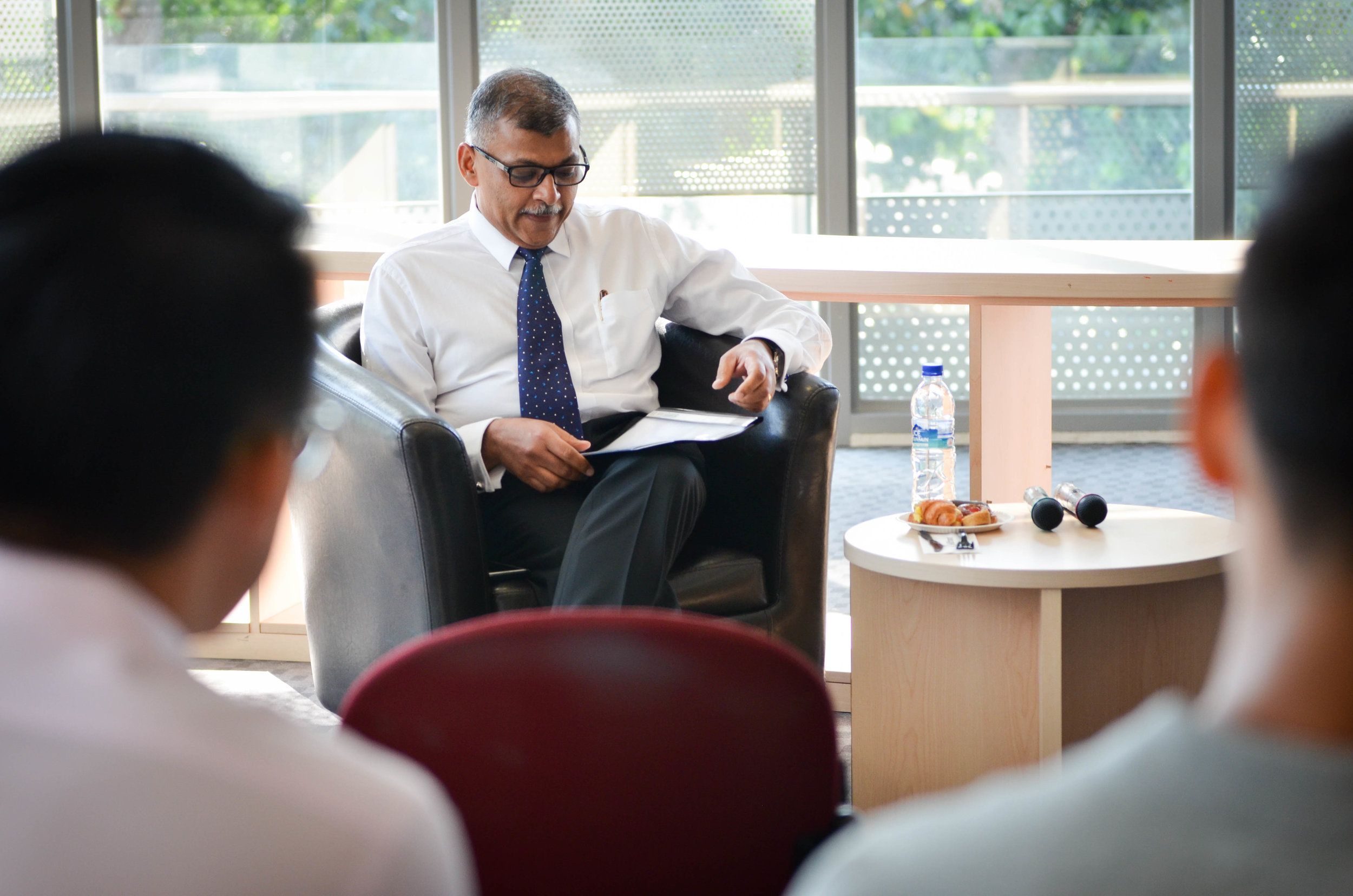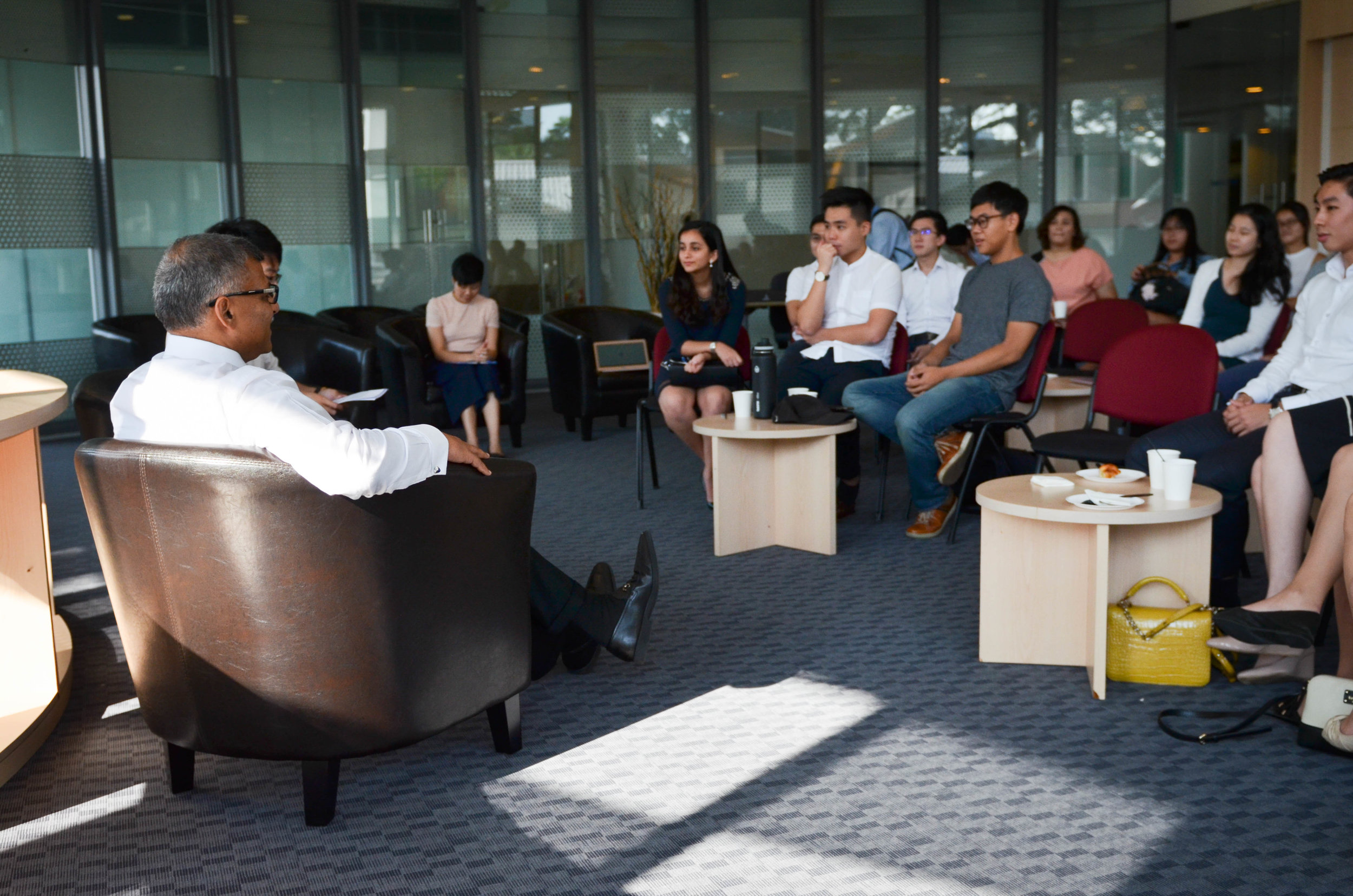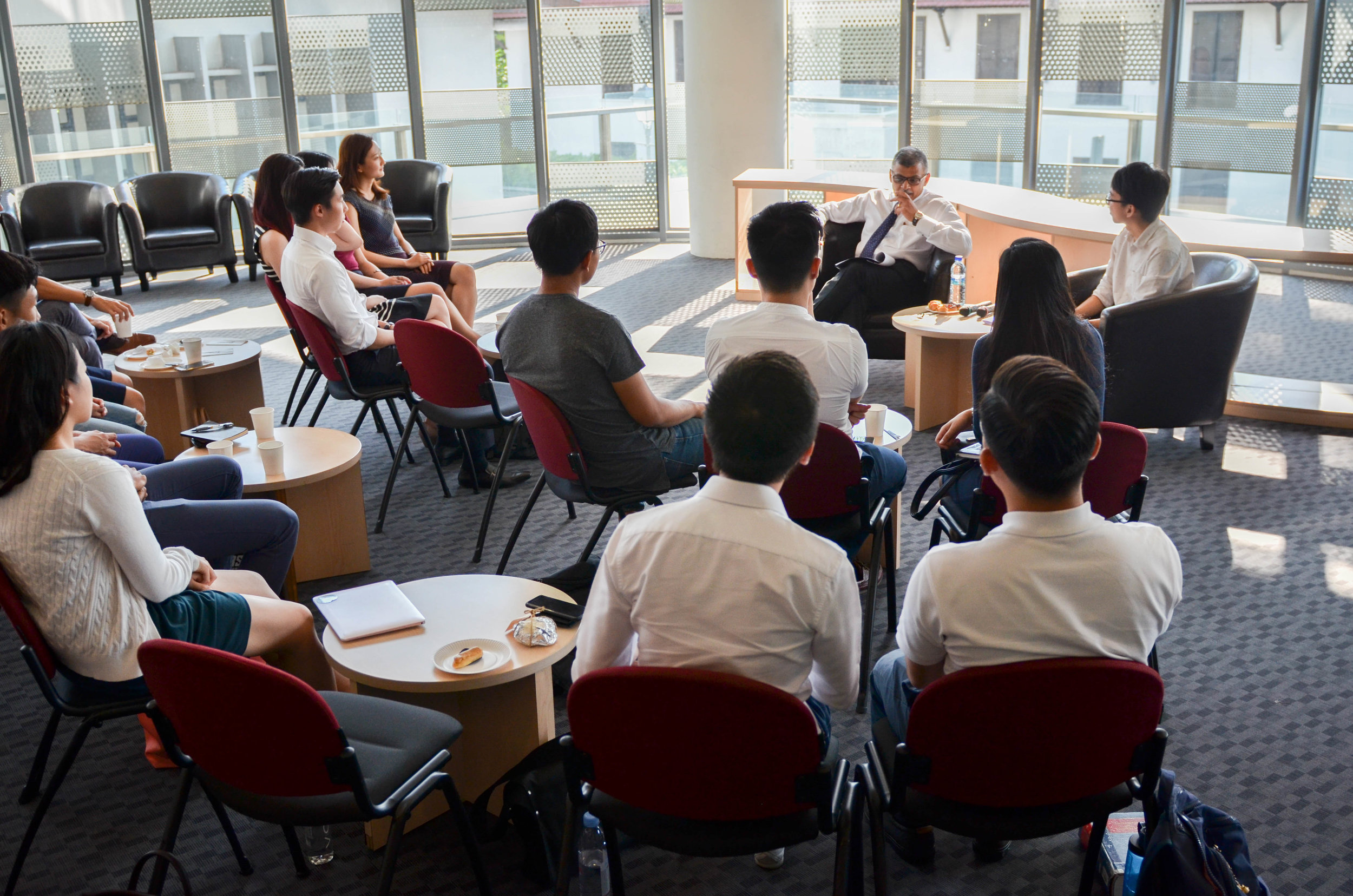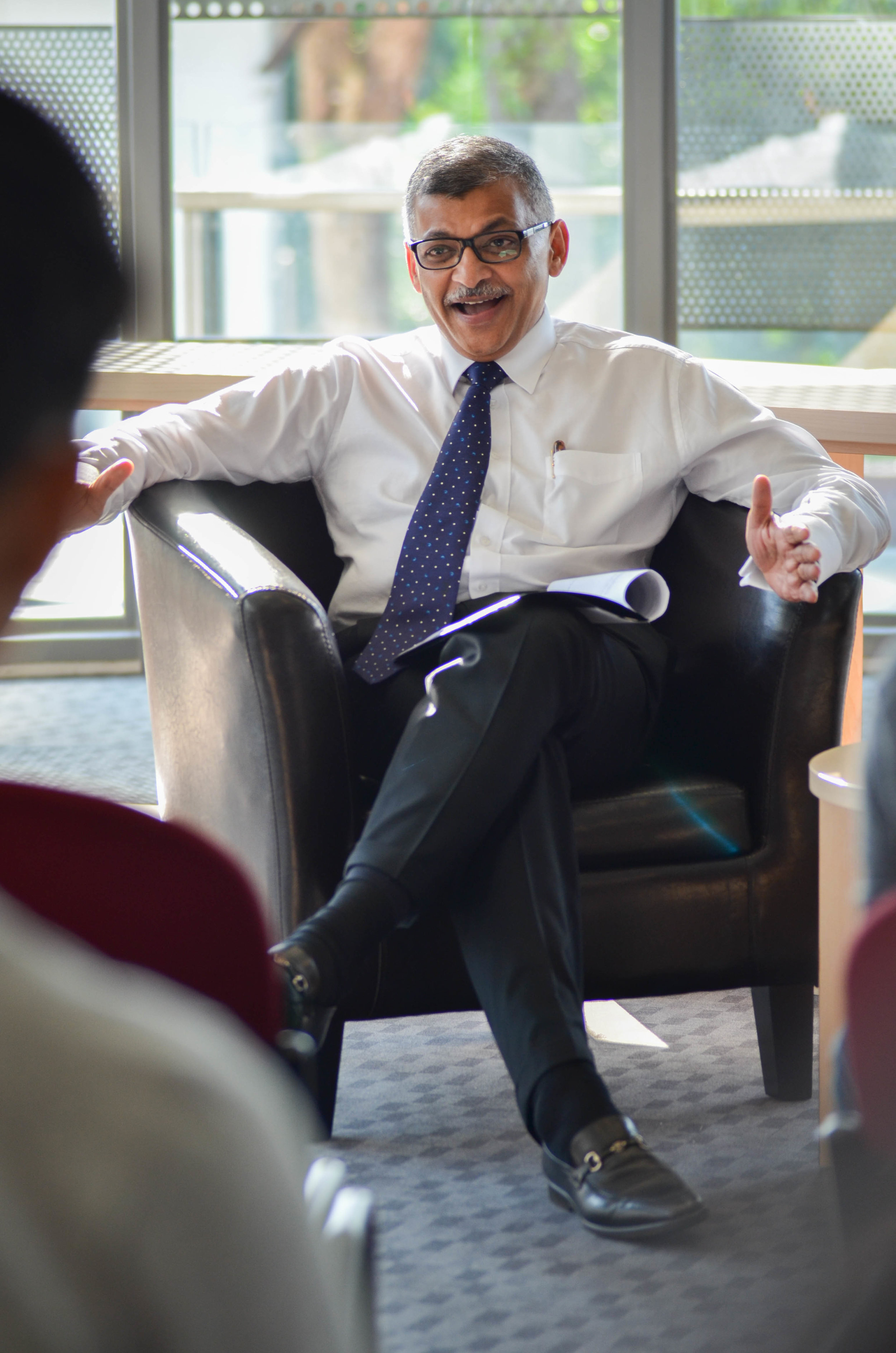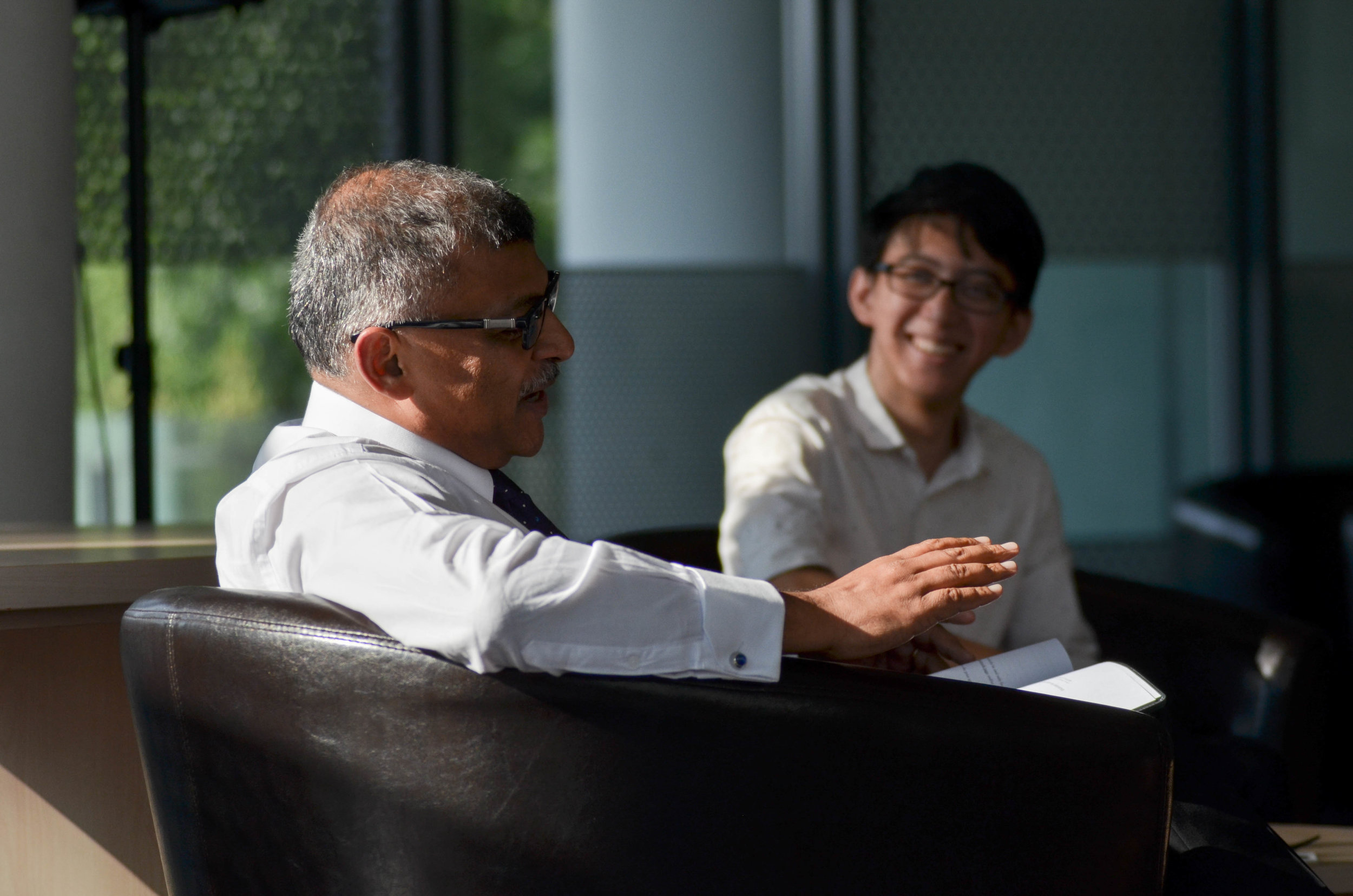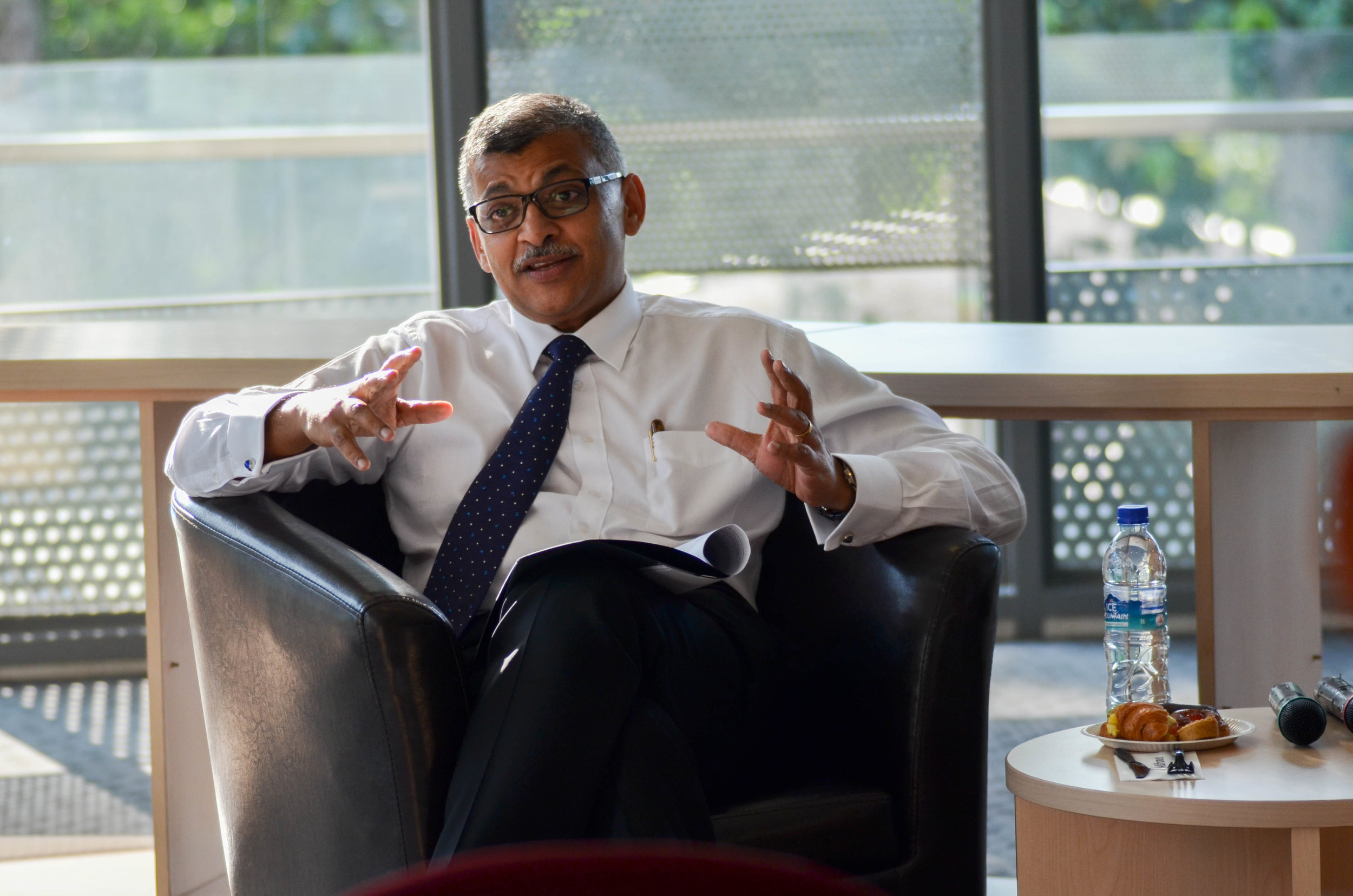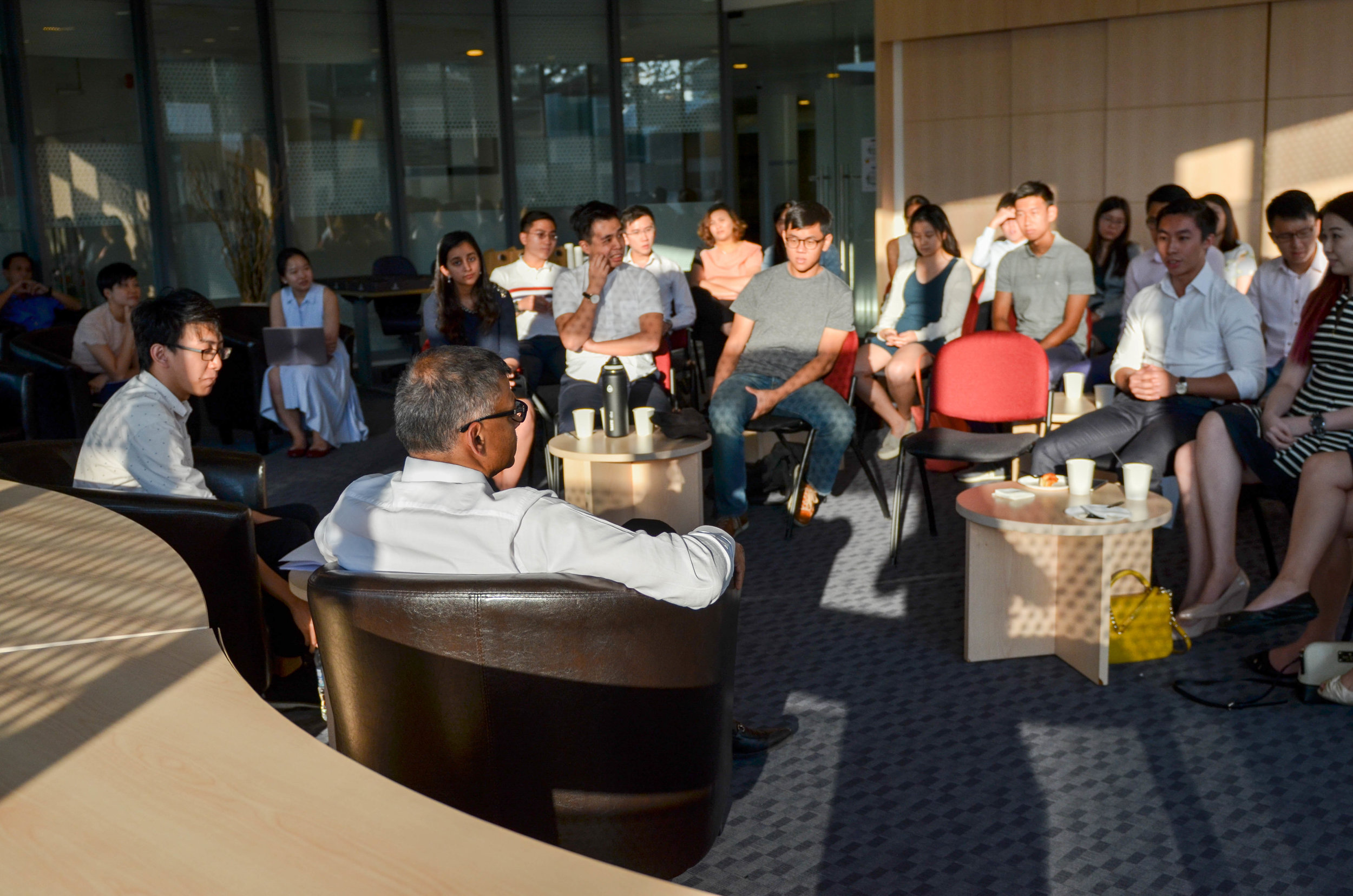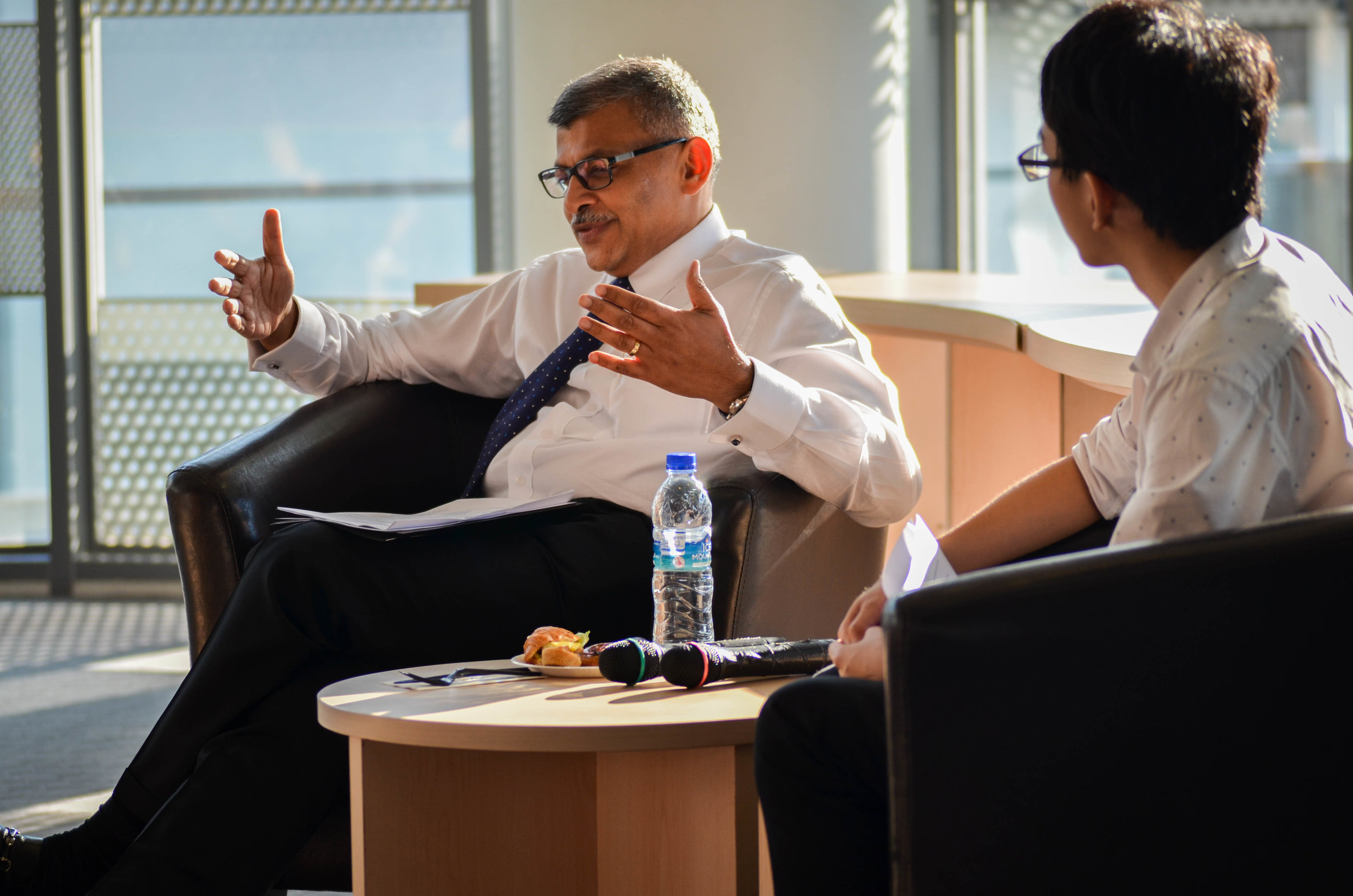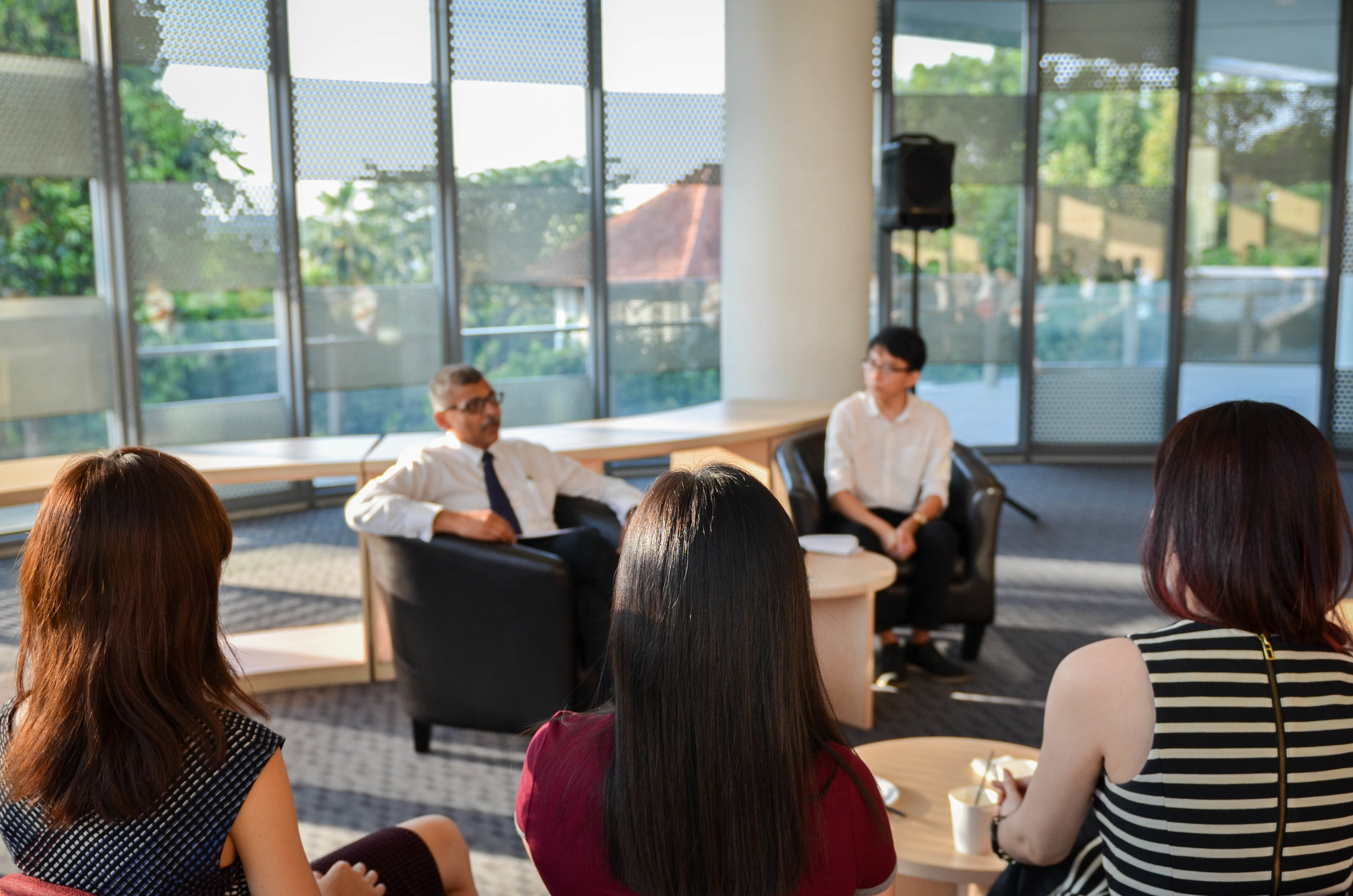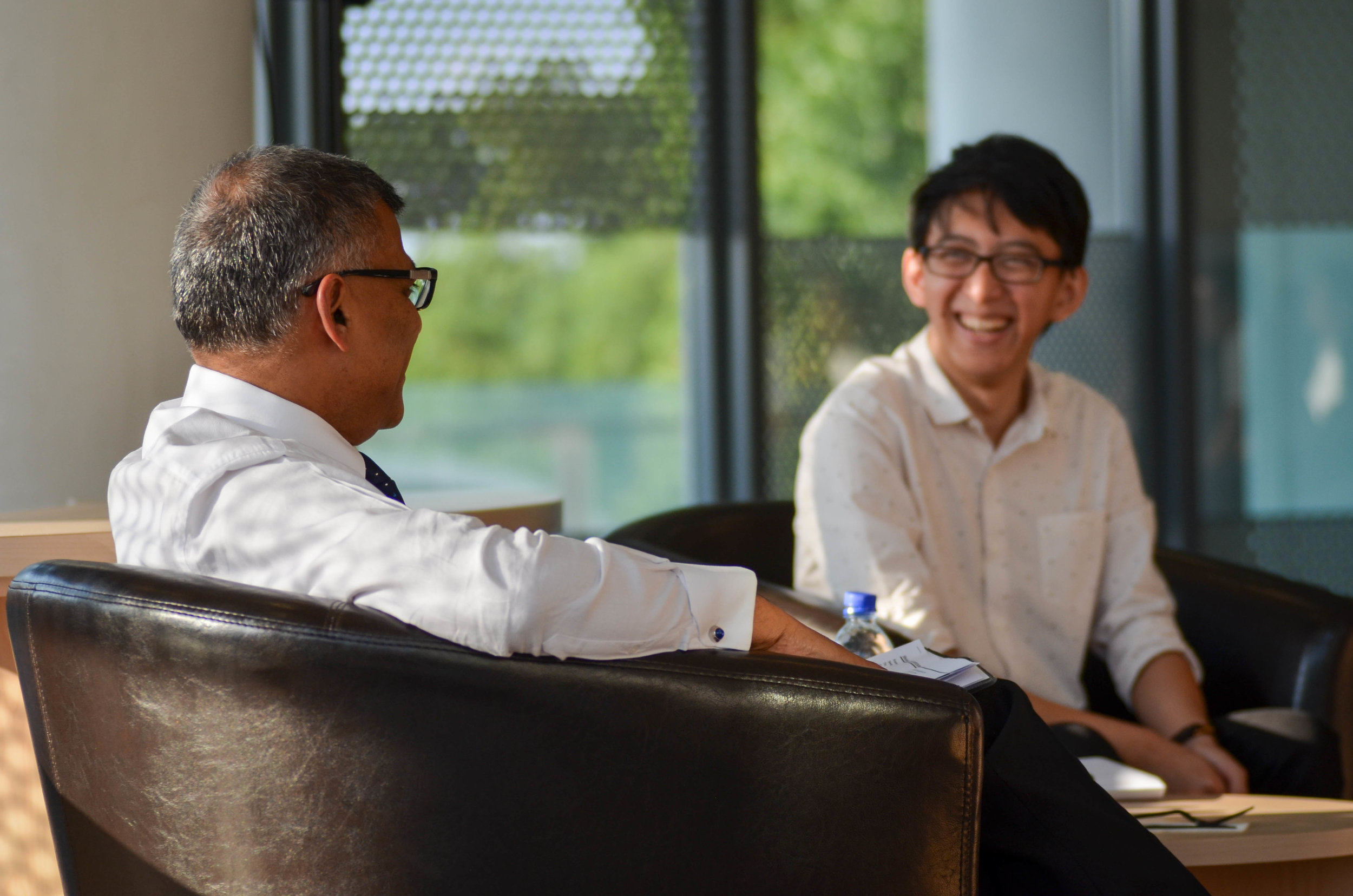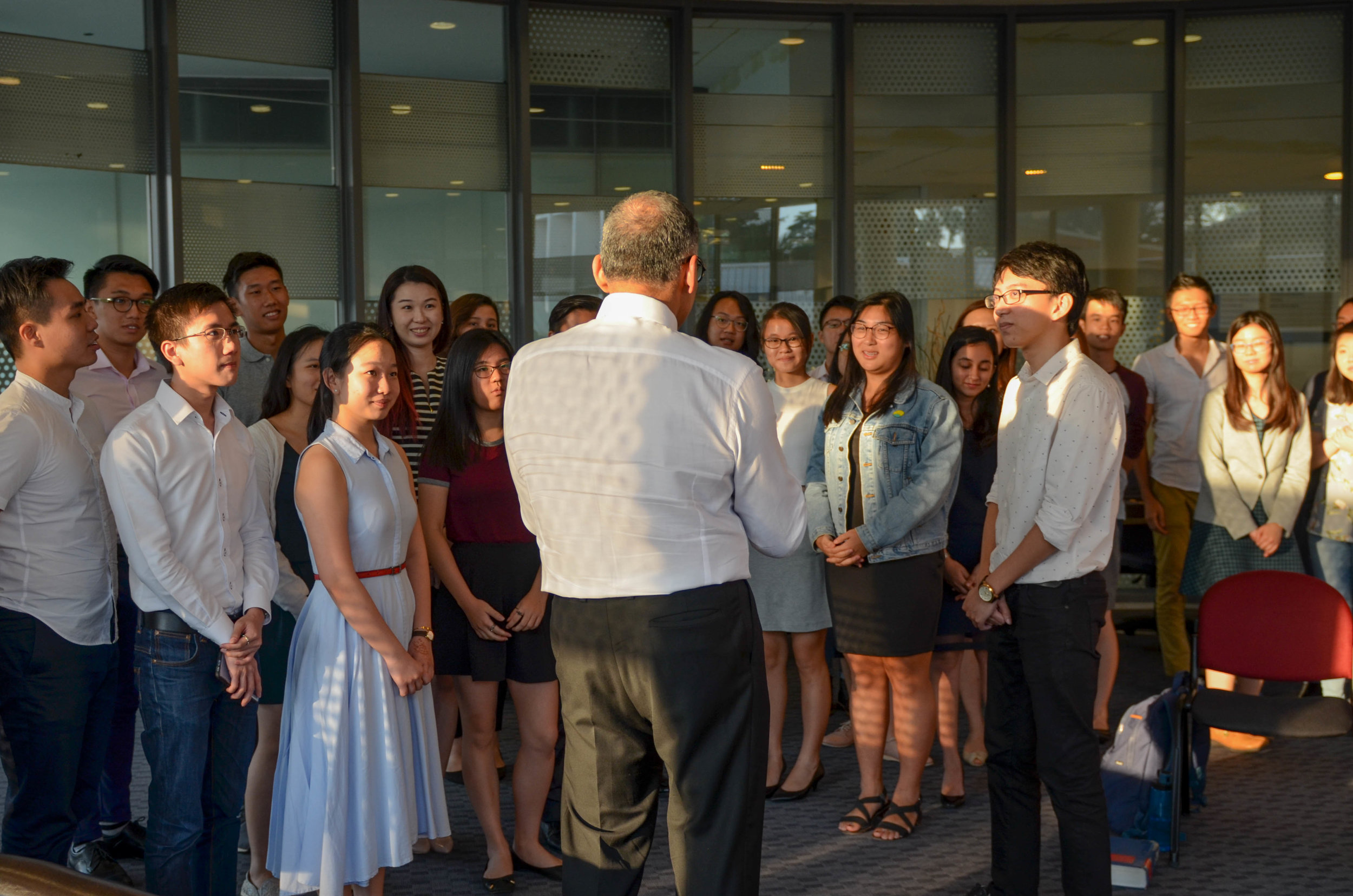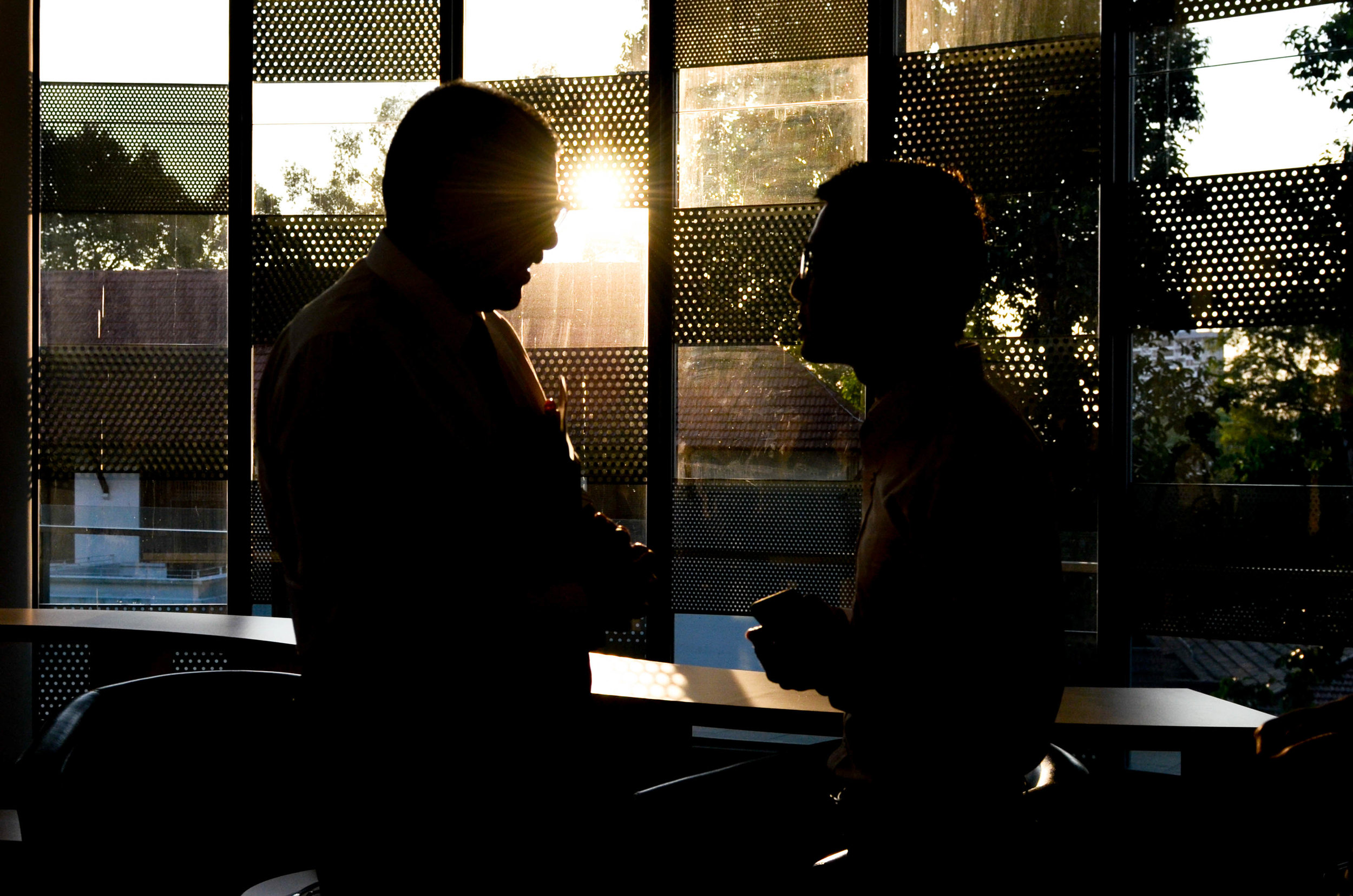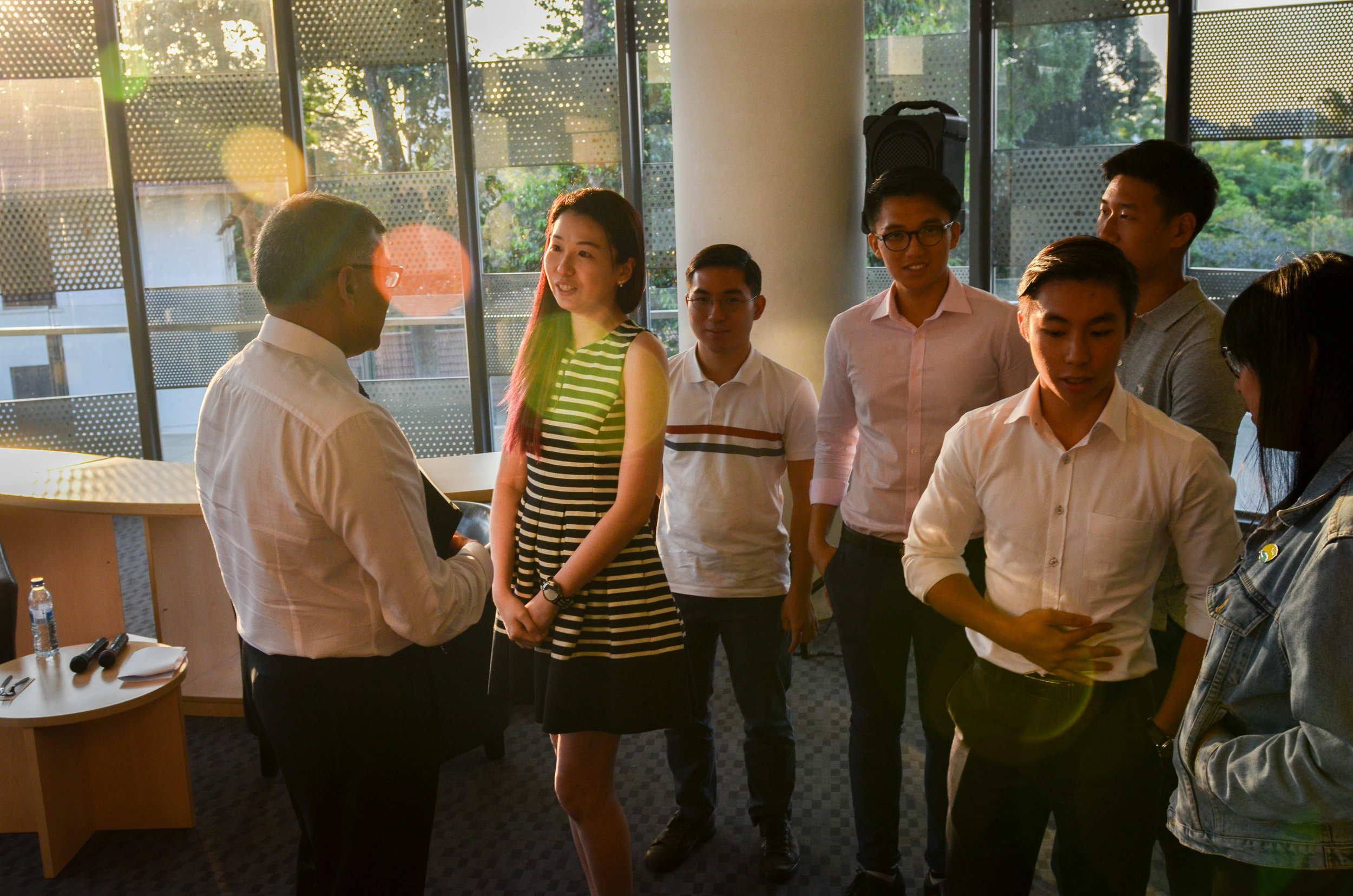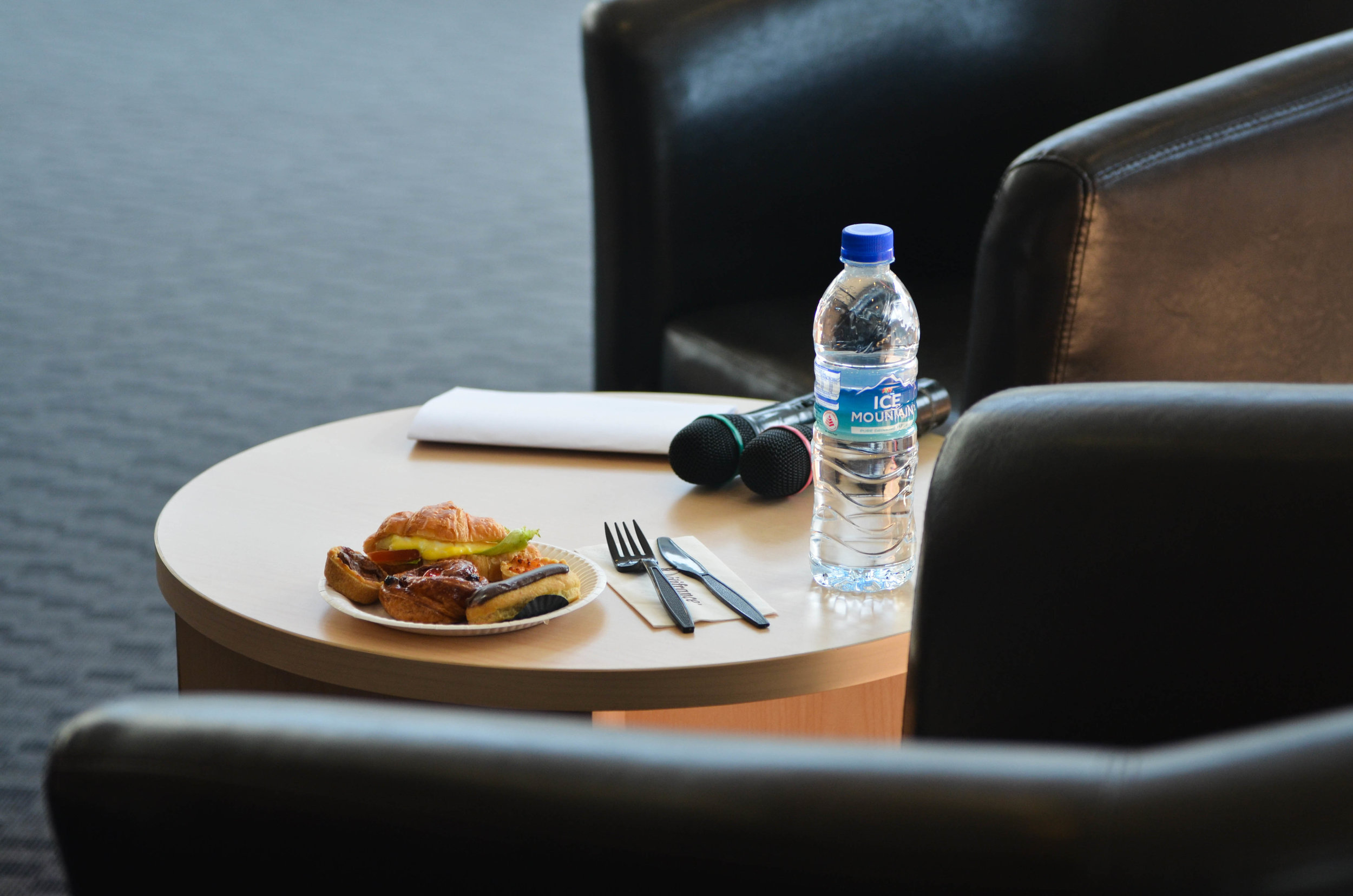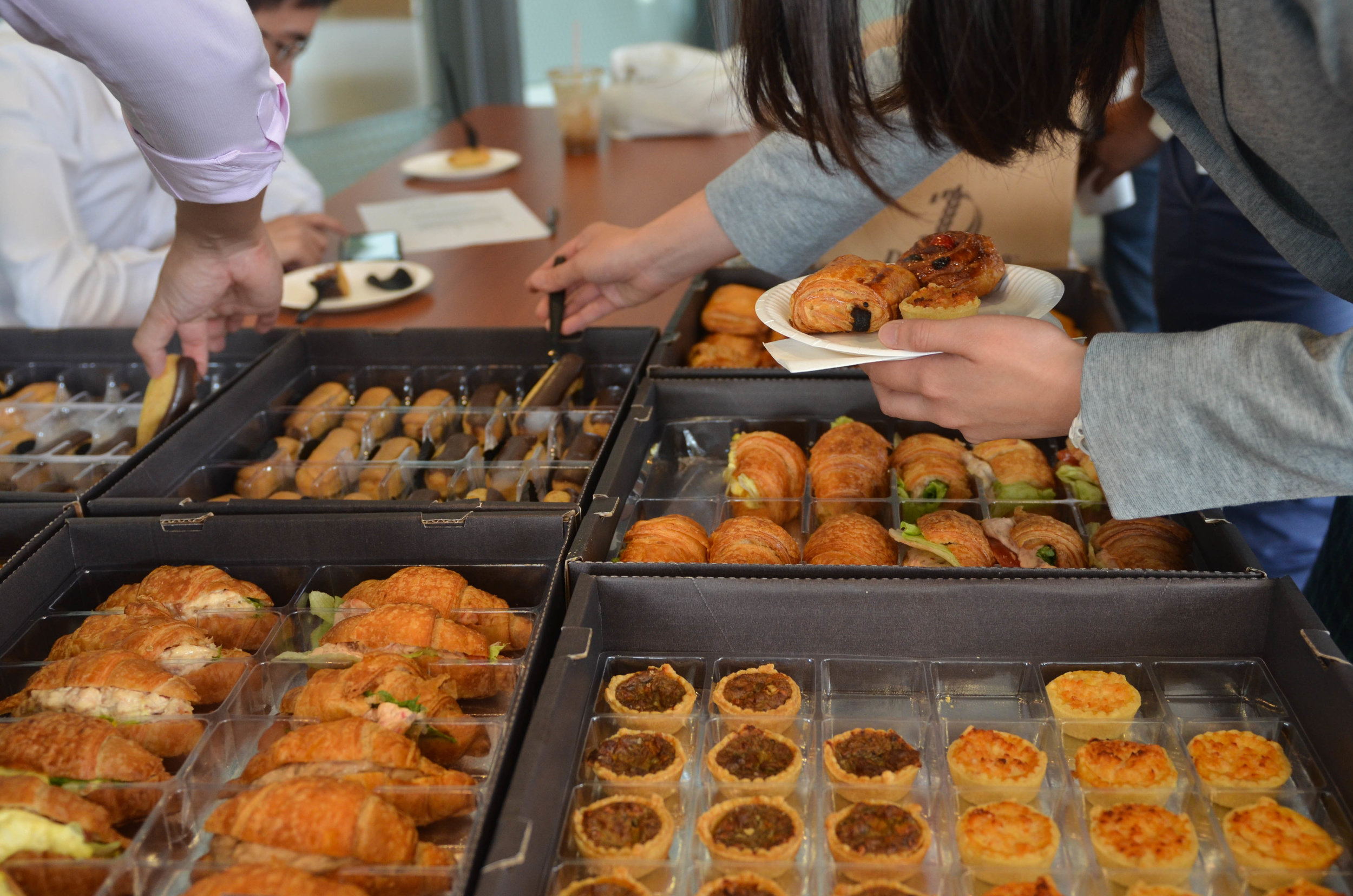On 3rd August 2017, Letters of the Law brought together 30 law students for an intimate chat with Chief Justice Sundaresh Menon: Breaking Bread with the Chief Justice. We believe that when we share our stories, our community is strengthened from within. Breaking Bread with the Chief Justice gave those who are just beginning their journeys in the law the rare opportunity to break bread with, and seek counsel from, one who has attained the highest legal office in the land. Participants were randomly selected and represented a wide range of law schools.
CJ Menon opened the event by narrating his own journey in the law. As a child of a foreign service officer, CJ Menon had lived in many different places while growing up. The experience impressed upon him the size of the world out there, with very different people facing different problems - not good or bad, but simply different. Over time, his aspiration of fighting cases in court and vindicating rights solidified into a desire to enter law school.
Law school was a “very, very full experience” for CJ Menon as he got involved in many activities, including serving as the president of his hall, playing rugby and participating in the Philip C. Jessup International Law Moot Competition. Subsequently, his years in private practice taught him a great deal about the pressure of competition and of running a successful firm.
“It is so humbling and inspiring to see that people come to court and will have to live with, accept and do exactly what you decide.”
However, it is CJ Menon’s last seven years in government that he calls “by far the most satisfying”. What he is most humbled by is the fact that his role requires him to respect and discharge the trust that people have in the court system.
“It is such a blessing to be able to look back on your life and realise ‘I never wished I had done anything else’.”
In particular, CJ Menon emphasised the fact that his path to his current position had never been about planning. Rather, at each instance he took the opportunities as they came, because it seemed like the most exciting or interesting thing to do. Through it all, he kept one fundamental rule in mind: to do his best in everything, and in doing so, to invest in always improving himself.
We are deeply grateful to Chief Justice for allowing us to share some of his responses from the event here.
LOTL: What was your biggest struggle during law school and how did you overcome it?
CJ: I want to go back to what I told you about being a foreign service child. During the 10 years when I was travelling around the world with my parents, I did well academically. When I came back to Singapore in 1978, however, I had to adjust to a new system of education and to a new environment. Those two years, I was really quite mischievous as I started discovering all the things that teenagers do. I did okay, to get into law school, but I really didn’t distinguish myself academically.
I made great friends, many of whom I am still in touch with, and I had a wonderful time. But the point was: when I got into law school, it had been four to five years since I had really been studying the way I had always studied. For example, I sat for my literature exam without having read the text. So I really had not been in the study habit at all for some years. That was hanging over my head when I entered law school.
When you go into law school – which I had been waiting to do since I was about 10 – you wonder whether you can do it. That was one of the issues I faced: a diffidence that I wouldn’t be able to get my act together in law school.
How did I overcome it? I just really enjoyed reading the cases. I recall sitting up and reading Regina v Willans in my first year. It’s a long case, and nobody got it. I remember sitting up and reading it and following the logic in it. I got into the habit of reading my cases, understanding my cases, understanding how the cases fit together. I seldom used the treatises. I taught myself mostly through reading the cases and trying to figure out how they stand together. That became a lifelong habit that has worked very well for me. That’s how I overcame it. And in the end I didn’t have to struggle, because I enjoyed the study of law, and I still do.
LOTL: What should a law student expect after graduating and entering the working world as a lawyer?
CJ: The first and most important thing I would say to you is: be prepared for very hard work. I don’t think the study of law is easy, and I don’t think the practice of law is easy. It’s a very intellectually demanding craft that you have picked. It’s particularly challenging because your professional life is about competition. Someone once said, “Law is the one profession where for every piece of work you do, you have someone else just as good trying to take it apart.” As someone observed, imagine if you were a surgeon, doing fine work, but having to do this in circumstances where another surgeon will come along and try to pick your work apart. It gives you a flavour of why it’s such a challenging profession.
To really excel, you have to find within yourself the answer that the other person has not thought about. You’ve got to find the thing that’s going to turn the case around. The cards are all the same, more or less – you all know the same facts, the same materials. The instructions are different, but you should both be able to assess the strengths and weaknesses. There’s not many secrets. And yet you have to find a way to think of a particular angle or solution to win the case. The difference is what is in your head and what strategic perspectives you can come up with. That makes it very intellectually challenging.
Many of the best, young lawyers will end up in commercial firms because that’s where the most intellectually challenging and financially rewarding work tends to be. In that area, you also have additional pressures – of clients, their expectations, the money they pay, the economic stakes involved.
So there’s no choice – you have to work really hard.
My second point is: fortunately or unfortunately, depending on how you look at it, you’re going to have to go through a long period of formation. You’re not going to have the same opportunities in your first or second year as my generation did. It will take a while, especially since the profession has become more specialised. Clients’ expectations have become higher. Clients demand specialised expertise and they expect to be able to insist that you don’t put youngsters on the case. So you have to prepare for a long period of formation, in which a lot of the stuff you will be doing will seem dull and routine. Try to find ways to learn, all the time. When your leader argues a point that you don’t think is the best point, talk to your leader and ask why she didn’t do something else. By and by you will get to the stage where you get your own opportunities to run a case.
Don’t be impatient. Be prepared to work hard. Don’t have unrealistic expectations about how sexy or glamorous it is going to be. It is going to be grinding more than glamorous.
But I would urge you to match that by taking on pro bono opportunities. If I could live my whole life as a lawyer over again, the one difference I would make is that I would have done a lot more pro bono work. That gives meaning to your work in a very tangible way. That gives you a way to sustain your sense of mission and idealism.
LOTL: What is your typical day like as a Chief Justice?
CJ: Let me tell you something about what my job entails, and then you can figure it from there. There are several different things I do.
The most obvious one is adjudication. I sit on the Court of Appeal roughly 15 to 16 weeks in a year. That has two implications. There is an enormous amount of reading that has to be done in a relatively short time. You cannot engage counsel, ask questions and get to the heart of the issues unless you have done your reading and have thought about them. That straight away doubles the time: if you are going to spend 16 weeks in court, you are going to have to spend around the same time (16 weeks) before that reading. Then there are the judgments you have to write. That takes up another chunk of time. So, adjudication on the whole probably takes up about 60 to 65% of my time.
Then, from the time I took office, I have given quite a lot of speeches and lectures in Singapore and around the world. I do that mainly because I believe it is partly my responsibility to project the face and voice of Singapore law internationally. That has had a lot of positive effects. People around the world increasingly realise that we have something serious to contribute to the global discourse about the law. That takes a lot of time.
Then I spend a fair amount of my time managing the way the courts should be run, thinking about areas for reform and improving delivery of justice. In the Supreme Court that includes specific projects like the International Commercial Court and the reform of civil justice. I also oversee the Family Justice Courts (FJC) and the State Courts, and interact quite regularly with the judges in those courts. I really want the entire judicial community in Singapore to understand they are one family with common goals and ideas.
I also head the Legal Service Commission, which oversees the manpower issues affecting every government lawyer and the lower court judges. We have about 600 people in the Legal Service today. I oversee that process and am quite hands-on with that.
I also have responsibilities with the Presidential Council for Minority Rights and head the Academy of Law, which is another huge, growing organisation with an important role to play in leading the profession into the future. I oversee quite a number of projects and work closely with staff to understand what they are doing and give guidance.
I also work informally with universities because I care very much about university education. I have an ongoing project with Joseph Weiler, imagining how we can do our legal education better. I do that because I care very much about our young lawyers and the future lawyers of Singapore.
All of those things have to find their time and their place. It’s very busy. I probably don’t get as much sleep as much as I should. There are also things I want to do. I try to spend an hour exercising each day, and an hour of prayer and private study and reflection, if possible. These things all take up time. And then I have a family that I care most deeply about.
It’s a very full life.
Letters of the Law would like to thank Chief Justice Sundaresh Menon for gracing Breaking Bread with the Chief Justice. We would also like to thank the Faculty of Law, National University of Singapore for its kind support of the event, and Jonathan Wai for the wonderful photographs.
This write-up was updated on 24 August 2017.
